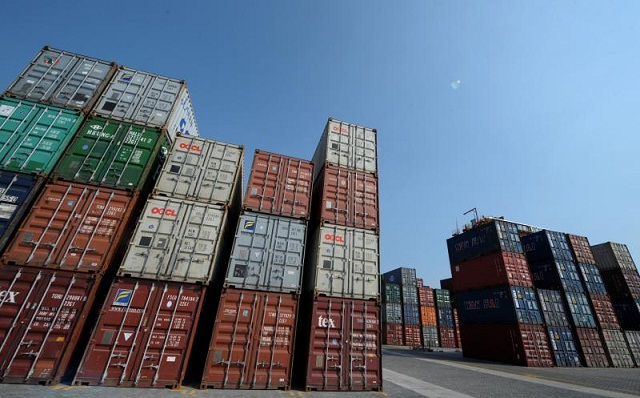Egypt is aiming to transform into a regional hub for mining industries, with value-added projects identified as a top priority in the Ministry of Petroleum and Mineral Resources’ operational strategy, according to a Tuesday government statement.
Karim Badawi, Minister of Petroleum and Mineral Resources, affirmed that the petroleum and mining sectors attach paramount importance to value-added projects and maximising the utilisation of Egypt’s petroleum and mineral wealth. “This will be achieved by expanding local manufacturing projects, producing world-class products, and subsequently exporting to international markets, thereby securing foreign currency for Egypt,” Minister Badawi stated.
He highlighted the goal of transforming Egypt into a regional hub for mining industries by leveraging its advanced infrastructure and distinct geographical location. Minister Badawi added that efforts are currently underway to develop the mining operations system, a key component of the mining sector’s focus within the Ministry’s current operational strategy. This initiative commenced with the transformation of the Mineral Resources Authority into an economic entity, aiming to increase the mining sector’s contribution to the Gross Domestic Product (GDP) to 5% or 6%.
These remarks were made during the General Assembly of Misr Phosphate Company, convened to approve the financial results for the fiscal year 2024.
During the assembly, Minister Badawi emphasised the necessity of formulating a five-year action plan for ongoing projects, including specific timelines for their completion. He also called for a comprehensive inventory of Egypt’s available phosphate reserves and noted an upcoming visit to the Abu Tartur phosphate region to monitor work progress.
Mohamed Abdel Azim, Chairperson of Misr Phosphate Company, delivered a detailed presentation on the company’s performance for fiscal year 2024 and its key performance indicators. He confirmed that Misr Phosphate Company aims to undertake exploration, prospecting, and investment in phosphate, as well as secure exploration and exploitation licences in various phosphate-bearing areas.
He stressed that Misr Phosphate is one of Egypt’s largest phosphate ore producers, operating through several concessions and licences for exploration, exploitation, and production in regions including Abu Tartur (New Valley), Al Shaghab (Red Sea), and Al Sebaiya (Nile Valley). Furthermore, the company manages certain mines owned by the Egyptian Mineral Resources Authority (EMRA) in the Al Shaghab areas of the Red Sea, producing various grades of phosphate ore suitable for diverse global markets.
Abdel Azim indicated that the company implements numerous production and marketing operations to achieve its primary objectives. This is guided by a strategy focused on maximising production and sales while rationalising expenditures, all based on a balance between production and sales.
According to 2024 statistics, Misr Phosphate Company has become the leading exporter of phosphate ore, accounting for 50% of Egypt’s total phosphate ore exports. The company also supports the domestic market by supplying all locally required grades of phosphate ore, facilitating raw material processing and maximising the added value of Egyptian resources.
To sustain the company’s growth, which requires exploiting new areas to boost production and expand phosphate ore reserves, robust exploration and prospecting plans are in place. “Currently, drilling operations are underway to confirm phosphate ore deposits, calculate geological and mining reserves across various regions, and prepare for sustained production,” Abdel Azim explained. These efforts ensure the company continues to implement its strategy of maximising output and maintaining its leadership position among exporting companies.
Misr Phosphate Company also aims to undertake several value-added projects. This includes a 24% equity participation in the establishment of a phosphoric acid production plant, planned for the Abu Tartur area in the New Valley, with investments totalling approximately $640m. Additionally, Misr Phosphate is collaborating with the Indian company Indorama to establish a joint venture for a phosphate fertiliser plant in the Ain Sokhna area, with investments reaching around $500m.
Regarding financial indicators for Misr Phosphate Company, net sales from its operations in Abu Tartur, the Red Sea, and Al Sebaiya reached EGP 7.9bn this year, a 149% increase compared to the previous year. Profit after tax amounted to EGP 3.3bn in fiscal year 2024, representing a 194% increase from the prior year.
Misr Phosphate Company is pursuing institutional development in full coordination with the Ministry of Petroleum and Mineral Resources and EMRA. This involves advancing exploration techniques, enhancing production activity performance, and developing human resources. Furthermore, it includes supporting decision-making processes, integrating information, and directing the company towards value-added applications for produced phosphate to maximise economic returns from phosphate ore.
The company is also committed to providing a comprehensive range of community services to urban settlements surrounding its production sites. This underscores its dedication to fulfilling its social responsibility, which has become a cornerstone of the state’s public policy.
The General Assembly meeting was attended by Engineer Salah Abdel Karim, CEO of the Egyptian General Petroleum Corporation (EGPC); Yasser Ramadan, CEO of the Egyptian Mineral Resources Authority (EMRA); Ashraf Bahaa, Chairperson of the South Valley Egyptian Holding Company (Ganope); Moataz Atef, Undersecretary of the Ministry for the Minister’s Office, Technical Office, and Official Spokesperson; Accountant Ashraf Qotb, Undersecretary of the Ministry for Financial and Economic Affairs; Ahmed Randy, Head of the Central Administration for Communications at the Ministry; and representatives of the Central Auditing Organization.




